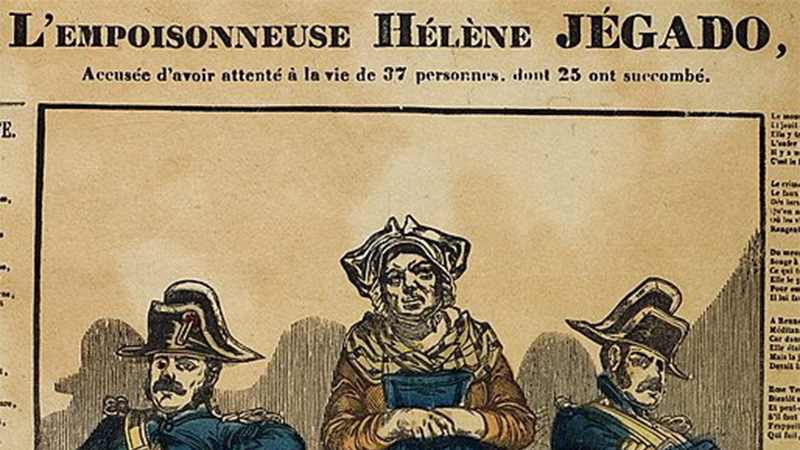Serial Poisoners and the Psychology of Crime
Join us for this History Work-In-Progress seminar with Dr Katherine Watson

The history of serial poisoning shows that it seemed to attract two types of killer, broadly speaking: those who found poisoning to be an effective means of achieving personal aims, often financial; and those whose motives were more difficult to understand and, in many cases, remained uncertain.
This seminar will consider examples of the latter, much smaller category. Although this group is now populated mostly by healthcare serial poisoners, its earlier inhabitants provide a revealing overview of the evolution of concepts related to the psychology of crime. Case studies including Hélène Jégado (1803–1852), Maria van der Linden (1839-1915) and Graham Young (1947-1990), diagnosed respectively as suffering from a phrenologically evident mental weakness, monomania or moral insanity, and sadism, reveal the historical evolution of medico-legal attempts to explain why some perpetrators become addicted to killing.
This seminar will present some of the preliminary research done on serial poisoning and the psychological motivations that might underpin it.
